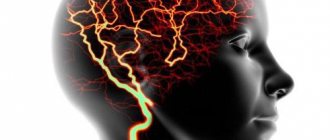Concept of chronic depression
What is chronic depression? Chronic depression is a mild mental disorder (dysthymia) that lasts up to 2 years. Females are more susceptible to this disease than males. The symptoms of the pathology are not pronounced, so others may not notice the problems. The client continues to lead his usual lifestyle.
Due to the absence of external manifestations of the disease, relatives do not realize that the client needs help. The consequence of this is the occurrence of more severe conditions and complications. The person thinks about suicide and may attempt suicide.
Seasonal dysthymia
Some people experience seasonal dysthymia without always noticing it. As the name implies, the disease comes with the change of season. Typically, during the autumn period, changes in mood, sleep patterns, appetite, and energy levels are observed. It is believed that about 2% of people are susceptible to deep seasonal depression. Milder forms are typical for 15% of people.
Signs of summer affective disorder (it is not so common): insomnia, anxiety, poor appetite.
Signs of winter affective disorder: overeating, drowsiness, cravings for foods high in carbohydrates, narrowing the circle of social contacts.
Causes of depression
Chronic depression, what is it? The causes of the disease are not completely clear. According to most doctors, one of the reasons for the occurrence of chronic depression is a deficiency of the hormone responsible for joyful emotions in the human brain. This hormone is called serotonin. The following triggers can also cause mental illness:
- long-term use of medications;
- pathologies of the central nervous system of a chronic nature and other diseases;
- difficulties in personal life and at work;
- tragic events in the family;
- separation from a loved one;
- long-term use of alcohol and psychotropic drugs.
Regardless of the reasons that became the impetus for depression, loved ones are required to participate in the client’s life. Without their help, the client will not be able to cope with a difficult life situation and solve problems.
Course of the disease
The chronic form of depressive disorder can be observed in the form of:
- the process of continuous development of depression,
- frequent and large periods of depression with small short breaks,
- inconsistent episodicity, unpredictable alternation of short “outbursts”, frustration and quiet periods
There are also 4 forms of disease severity :
- light,
- moderate,
- moderate severity,
- heavy
The severity of the disorder is determined by the severity of symptoms .
The disease can develop in one of 2 ways:
- Somatized . Characterized by a sharp deterioration in health. There is a rapid heartbeat, anxiety, tearfulness, sleep and digestion disorders (usually constipation), and a general deterioration in well-being.
- Characterological . Depressive symptoms merge with a person’s character if the illness affects a melancholic person or a phlegmatic person prone to introspection. There is blues, pessimism, anhedonia (lack of desire for pleasure), frustration and melancholy, a feeling of the meaninglessness of existence.
Symptoms of the disease
Chronic depression in a loved one can be determined by the following signs:
- Manifestation of apathy towards what is happening, loss of interest in life.
- Life seems dull and boring to the client; he perceives reality with hopelessness and despair.
- Throughout the day, the client feels tired and overwhelmed.
- The client's physical activity decreases, actions are performed without enthusiasm, phlegmatically. He doesn't want to do anything. Most of the time is spent in bed. Even watching TV or listening to music does not arouse interest.
- Sleep disturbance. Clients cannot fall asleep for a long time and toss and turn in bed. Some people fall asleep quickly, but their sleep is restless and often interrupted.
- Performance decreases, the client finds it difficult to concentrate on anything, and mental activity decreases.
- Indifference to what is happening. Neither joyful nor sad events are capable of arousing the client's interest.
- Loss of self-esteem, lack of self-confidence.
- Food needs change: the client either refuses food or eats everything indiscriminately.
- Suicidal tendencies.
If several of the symptoms of chronic depression are observed in the behavior of a loved one over the course of 1-2 weeks, it is recommended to consult a doctor. He will help you correctly identify the symptoms of chronic depression and prescribe treatment.
Clinical picture and diagnosis
Masked depression - what is it?
The clinical picture includes the following symptoms:
- Depressed mood;
- Almost complete or absolute loss of interest in activities that previously evoked positive emotions;
- Somatic disorders – weight loss, sleep disturbance;
- Impaired concentration;
- Anxiety, panic attacks.
When diagnosing the disease, clinical criteria must be taken into account. In addition to these symptoms, it is necessary to take a blood test to determine the content of a number of microelements in the body.
Such beauty, but a person is depressed
According to the International Classification of Diseases, 10th revision , the patient’s clinical picture must meet the following criteria:
- Persistent or regular depressive episodes that have occurred for at least two years. There may be periods of normal mood that last less than a few weeks. In this case, there are no manic episodes (to exclude manic-depressive psychosis).
- Depressive episodes are not consistent with mild recurrent depressive disorder.
- At least with some relapses of symptoms, the following signs are possible:
- decreased energy and activity;
- sleep disturbance;
- feeling of self-doubt;
- difficulty concentrating;
- tearfulness;
- loss of interest in hobbies;
- feeling of hopelessness;
- a feeling of one’s own weakness in the fight against life’s difficulties;
- pessimism;
- reluctance to communicate with people.
Important ! The diagnosis does not include symptoms of mild anxiety depression, prolonged depressive reaction and residual schizophrenia.
How to get rid of chronic depression?
How to treat chronic depression? Several methods of treating the disease are used:
- Psychotherapy sessions individually or in a group. This therapy is suitable for minor mental disorders. A highly qualified professional in the field of psychology is Nikita Valerievich Baturin. It will help get rid of fears, panic attacks and will be able to increase the client’s self-esteem.
- If psychotherapeutic sessions do not help overcome chronic depression, the doctor will prescribe medication. Together with the sessions it will give a positive effect. Medications are prescribed for disorders of moderate severity.
- If the disease cannot be overcome with the help of sessions and medications, then electroconvulsive therapy is used. It is used for severe depression.
- For severe depressive disorders, magnetic brain stimulation can also be used. It involves applying a strong magnetic field to certain areas of the brain.
- If all of the above methods do not bring positive results, then to get rid of chronic depression, the client’s vagus nerve is exposed to electrical impulses.
How to get rid of chronic depression? To get rid of the disease as quickly as possible, doctors recommend the following:
- The client's daily diet should include foods that promote the production of serotonin.
- Sports training will help you take your mind off sad thoughts and improve your mood. If you can achieve changes in appearance through physical activity, the client’s self-esteem will increase.
- Daily walks in the fresh air, regardless of weather conditions. Walking through a park, square, or being in nature will relieve the client of bad thoughts. It is recommended to have a pet. It will help normalize the client’s daily routine and will occupy all his free time.
- You should go to the cinema, theater, exhibition. Such events will distract you from sad thoughts and allow you to make new acquaintances, which will help diversify your boring life.
Medicines for depression
Treatment of chronic depression is best done under medical supervision. Doctors prescribe medications with the least side effects. You shouldn't expect a quick effect. The drugs begin to act a few weeks after starting their use. The duration of the therapeutic course is usually at least 6 months. Clients are prescribed the following antidepressants:
- Effexor and Cymbalta are selective family inhibitors with a principle of action based on the reuptake of serotonin and narodrenaline;
- Marplan, Nardil, Parnate, Emsam - monoamine oxidase inhibitors;
- other dosage forms - Mirtazapine, Bupropion.
Due to the fact that all medications have side effects on the body, their selection should be done by a doctor. To make a correct diagnosis and prescribe medications, you need to consult a professional.
How to get rid of depression on your own?
The client can independently overcome the signs of chronic depression. To do this you need the following:
- the ability to enjoy little things;
- get rid of circumstances that contribute to deterioration of mood;
- belief in a happy life;
- do not think about the negative aspects of life;
- be physically active;
- make your life interesting;
- find a passion;
- provide services to others;
- do not consider bad events that happen in life as inevitable;
- get a job that you will like;
- listen to your own opinion, regardless of the advice of others;
- don’t be discouraged, don’t complain;
- avoid communicating with people who constantly talk about personal problems;
- do not put off until tomorrow what you can do today (do fitness, go to see friends, start reading a book, etc.).
I don’t want to, I can’t, I’m itching
The general symptoms of dysthymia fit into the classic fairy tale image of Princess Nesmeyana:
- unreasonable tearfulness;
- desire for solitude;
- taciturnity;
- constant grief - a feeling of hopeless despair experienced in the present, coupled with a constant analysis of mistakes in behavior in the past and gloomy pessimism in looking at the future;
- lack of confidence in one’s own capabilities due to low self-esteem;
- a feeling of inability to fulfill the basic requirements and norms of everyday life;
- difficulty concentrating;
- low daily activity due to chronic energy deficiency;
- night insomnia;
- lack of pleasure from sex and craving for other activities that are considered pleasant for everyone (anhedonia).
The dysthymic personality type is a walking image of exhaustion, exhaustion, chronic fatigue, and almost physically palpable weakness. This is always the pose of a drooping plant, devoid of strength and energy.
In cases of rare communication, due to their gloominess, apathy, grumpiness, irritability, melancholy and tediousness, they produce on their interlocutors the impression of incorrigible inveterate pessimists who regard current life difficulties as natural phenomena that should not even be attempted to overcome or resist them.











